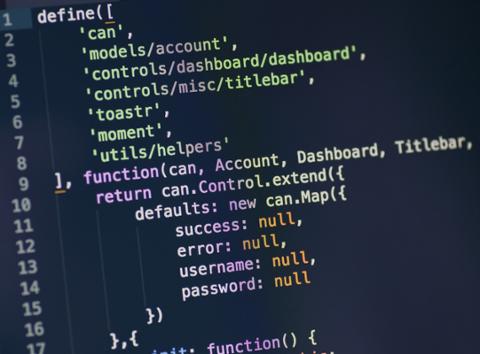Women Developers: Pursue Open Source
While the gender imbalance in the technology industry is often reported, the lack of diversity in the open source (OS) community is even more glaring. It’s been estimated that only 11 percent of open-source contributors are women. It’s easy to view that percentage as dispiriting, given the opportunities presented by the open-source space, including improved coding and communications skills, as well as networking with like-minded developers. There’s also the employment aspect: some 64 percent of companies that participated in the 2015 Future of Open Source Survey currently take part in open-source projects, creating a need for tech pros with complementary skillsets. (The survey identified cloud computing, Big Data, operating systems and Internet of Things (IoT) as the top technologies driven by open source.) More women with open-source skills could help solve the aforementioned gender imbalance at many tech firms. “When you work in open source software, it gives you the opportunity to build your portfolio and gain transferable skills because you're working with open technologies,” said Marina Zhurakhinskaya, Red Hat’s senior outreach specialist. Her job includes working on open-source community diversity and inclusion. “Because open source is developed in public communities, which are usually made up of both paid professionals and volunteers,” she continued, “you don't need to wait to be hired for a particular job if you're interested in working in a certain area of technology. Instead, you can hone your skills at any time by starting to contribute to a project that interests you.” The open-source community is a deeply passionate one with its own set of principles and ways of working; anyone can contribute, and peer review is hugely important. If you make a mistake, you can count on dozens of qualified developers to point out the error of your ways. Before you take advantage of what open source has to offer, though, it’s vital that you consider your motivations for getting involved. David Yang, co-founder and lead instructor at Fullstack Academy, said the best reason to enter the space is because you want to support a tool that you like, need or use. “Getting into open source to boost your own resume without having a lot to add will feel unauthentic,” he said, noting that project communities can easily pick up on a contributor’s ultimate intentions. In light of her own experience, Zhurakhinskaya is an evangelist for women in the space. “I find it rewarding to direct my efforts to something that can be reused and built upon and I’m helping to build technology that is respectful of the user by allowing the user to examine the code and make modifications to it,” she said. Once you’ve zeroed in on a project of interest, she suggested, go over its resources for novices before joining its communication channels. Your ability to understand the code base is only one piece of the puzzle. Yang advised that newcomers take a close look at the community behind the code base: examine how they engage and if they have a Code of Conduct that’s enforced. If they have flame-wars on mailist lists, it may not be a comfortable place to start; but if they communicate politely in Github tickets, you could get your feet wet without having to deal with a lot of rancor. Both Yang and Zhurakhinskaya stressed the importance of finding out the needs of a particular open-source community before you get involved. Is their documentation terrible? Are there a lot of bugs in the code? Whatever the situation, an honest and effective way into any project is to help on the borders before trying to submit changes to the core. Asking mentors and maintainers what you can add to the project is also a good way to find something to work on. Zhurakhinskaya also suggested starting small by identifying an easy bug to fix. “Work on a fix, ask questions, and update your code based on reviews you get until you have your first patch merged,” she said. “Even if you don't get a patch merged on the first try, don't get discouraged. Try a different bug or a different project, and eventually you will gain traction.”



